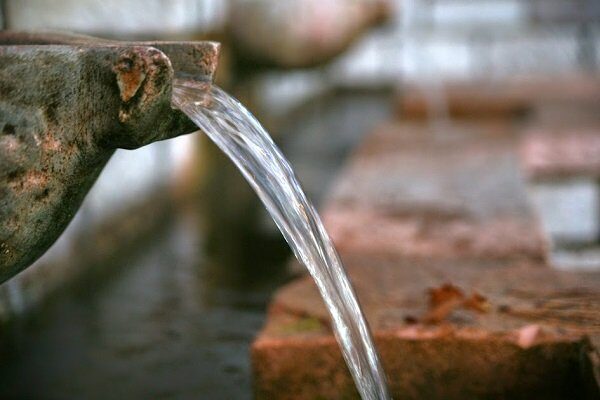‘Our Thirst and Christ’s Baptism’
8 January 2021What does the service of the Blessing of the Waters on the day of the feast of the Theophany really have to say to us people today? What does this ancient Christian feast mean for us? Does it answer any deeper existential question we may have? Or is it merely a beautiful liturgical practice which we attend, but which doesn’t affect our lives?
People are thirsty by nature. We thirst for meaning. The feast of the Theophany corresponds exactly to this thirst for a meaning that will overcome death. God became manifest in the waters of the River Jordan. And it’s no coincidence that this manifestation of the Holy Trinity, this ‘theophany’ took place in water. It represents a deeper significance, a prefiguration.
Water symbolizes cleanliness and purity; it cools us in the burning heat of life. We thirst, and we can’t live without water. And, at the same time, we need to keep clean. We seek bodily and spiritual cleanliness. So it’s no accident that Christ began His ministry by being baptized in the Jordan. God is revealed in our history and in our life. He leads us, through signs, imagery and ontological symbolism, to an understanding of His plan for our salvation and for that of the whole of creation. He uses natural phenomena to mark a new beginning, a new era for humankind, a new phase of divine dispensation, purification and deification.

Through the voice of the Father (‘you are my beloved son in whom I am well pleased’, Mark 1, 11) and the presence of the Son and Holy Spirit (‘and the Sprit in the form of a dove descended on him’, Mark 1, 10), the Holy Trinity sends a powerful message to us: that our thirst for eternity and immortality, for a victory over death, has found its answer in the person of Christ. He it is Who, putting on and bearing the whole of our humanity, has accepted baptism by John, not because He had any need of it, but to prefigure and symbolize His mission, what He had come to accomplish in the world. This was His ministry: purification, illumination and the joy of the Resurrection. Christ reveals that He is the ‘water of life’, the answer to the thirst of each of us suffering in the wilderness and burning heat of the world.
So in this age-old ritual of the blessing of the waters on the day of the Theophany, something tremendous occurs in our life. Something that is continuously being played out in the Church and, specifically, in the Divine Liturgy. Our life, our nature, and creation are transformed into the Kingdom of God and we have a foretaste of this, until the time comes when we can exist permanently and completely within it. So even though the water we have in containers before us doesn’t change its nature, there is, through the Holy Spirit, a change in its relationship with us as regards creation. The nature of the water isn’t negated. It’s still absolutely water. But now it’s greater than its biological usefulness. We’ll drink it not only to slake our bodily thirst but for the whole of our being.
Whereas before, we would have drunk it to slake our bodily thirst, after the Blessing we take it to assuage our existential anxiety and fear of death. Through this water, the sanctifying Grace of God now dwells within us, transforming the darkness of death into the light of eternity.
‘The joy of Epiphany is in the recovery of a cosmic experience of the world, of recovering faith that everything and everyone can always be washed, purified, renewed, reborn and that regardless of how dirty and clouded with mud our life has become, no matter what swamp we might have rolled in, we always have access to a purifying stream of living water, because humanity’s thirst for heaven, goodness, perfection and beauty is not dead, nor can it ever die. Indeed, this thirst alone makes us human beings. “Great are You, our Lord, and marvellous are your works, and there are not words which suffice to hymn Your wonders…”. Who said Christianity is depressing and grim, morbid and sad, and pulls human beings away from life? Look at the faces of worshippers that night and see the light and joy that shines as they listen to the psalm thundering its exultation, “The voice of the Lord is upon the waters” (Ps 29:3), as they watch the priest sprinkling volleys of blessed water throughout the church and those glittering drops fly as if throughout the whole world, making that world once again a possibility and a promise, the raw material for a mysterious miracle of transformation and transfiguration. God Himself entered this water in the form of a man; He united Himself not only with humanity, but also with all matter and made all of it a radiant, light-bearing stream flowing towards life and joy (Alexander Schmemann, ‘The Lord’s Baptism’).






